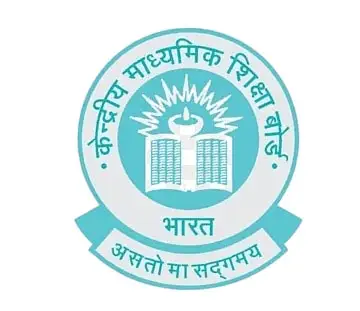
FOUNDATIONAL STAGE
The program for Pre-Nursery to Kindergarten (KG) is designed to provide a holistic and developmentally appropriate learning experience for children aged 3 to 6 years.
Educational Structure:
Curriculum Highlights:
- Play-Based Learning: This fosters cognitive, social, and emotional development in a natural and engaging manner.
- Foundational Literacy and Numeracy: A strong emphasis is placed on developing early literacy and numeracy skills through interactive and child-centric pedagogies, ensuring children build a robust foundation for future learning.
- Holistic Development: Our program integrates activities that promote physical, emotional, and ethical development, including arts, music, physical education, and value-based learning, nurturing well-rounded individuals.
This in turn is done through honing various skills like listening, speaking, reading and writing. The child is assessed individually twice a year.
PRE-NURSERY, NURSERY & KG
The philosophy behind the teaching is “We play as we learn and we learn as we play.” Goals are set in a programme consistent with the early stages of a child’s development. The programme includes the following skills: Linguistics, Creative, Numerical, Social/ Interpersonal, Motor and Kinesthetic. Thus, we hope to hone the child’s intellectual, physical, cultural, artistic and communication skills in a free and stimulating environment. Children have lunch together and this helps in the development of social skills.
At S.K.S. we believe that every child is unique individual with unique learning abilities. In the formative years the emphasis is on the development of language & mother skills in the child. This inturn is done through honing various skills like listening, speaking, reading and writing. The child is assessed individually twice a year.
Preparatory Stage (Classes 1-5)
- Focus: Interactive, discovery-based, and experiential learning.
- Curriculum:
○ Language Development: Emphasis on multilingual learning, continuing with mother tongue/home language as the primary medium.
○ Mathematics & Science: Conceptual understanding with real-life applications.
○ Social Sciences: Introduction to history, geography, and civics.
○ Arts & Physical Education: Inclusion of music, dance, and sports.
○ Technology: Exposure to digital literacy in a limited, age-appropriate manner.
At the year end subject wise grades of a student are calculated on the basis of performance in all Periodic Assessments.
Medical cases: In case of medical cases (certified by a Registered Medical Practitioner), the child may be promoted on the basis of cumulative result as decided by the Examination committee The student not scoring the qualifying ‘Grade’ in any subject will be given a chance to appear for an improvement Exam.
Middle Stage (Classes 6 to 8)
1. Interdisciplinary Approach: Subjects are integrated rather than taught in isolation. Example: Science and Math are linked with real-life applications.
2. Experiential Learning: More focus on hands-on learning, projects, and real-life problem-solving.
3. Coding and Digital Literacy: Basic coding and AI exposure from Class 6.
4. Multilingual Education: Emphasis on regional languages while encouraging bilingual learning.
5. Flexible Assessments: Shift from rote memorization to competency-based assessments.
6. Modular Exams: Instead of one final exam, assessments are held at different stages.
7. Assessment Reform: Exams test conceptual understanding rather than rote learning
Four-Year Modular Secondary Stage (Classes 9–12)
Focus on multidisciplinary learning, with no rigid division between Science, Commerce, and Humanities.
Board Exams Twice a Year & Credit-Based System
- Students can take board exams twice a year and retain the best score.
- Modular exams for different subjects rather than a single high-stakes exam.
- Introduction of a credit-based system, where students accumulate credits across subjects.
Flexible Subject Selection
- No more fixed Science, Commerce, or Arts streams. Students can mix and match subjects.
- More focus on vocational education, arts, and sports along with traditional academic subjects.
- Skill-based courses will be integrated
Emphasis on Conceptual Understanding
- Focus on competency-based learning rather than rote memorization.
- Greater emphasis on critical thinking, problem-solving, and real-world applications.
Multilingual Education
● Emphasis on learning in the mother tongue/regional language wherever possible.
● English remains an option, but multilingual learning is encouraged.
Holistic Progress Card
● Traditional report cards will be replaced by holistic progress reports.
● This will include academic performance, co-curricular activities, and life skills.
School Exams & Assessment Changes
● Continuous and formative assessments rather than only one final exam.
● Open-book exams, project-based assessments, and AI-driven adaptive assessments are being considered.

 CBSE Affiliation No. (2134098)
CBSE Affiliation No. (2134098)